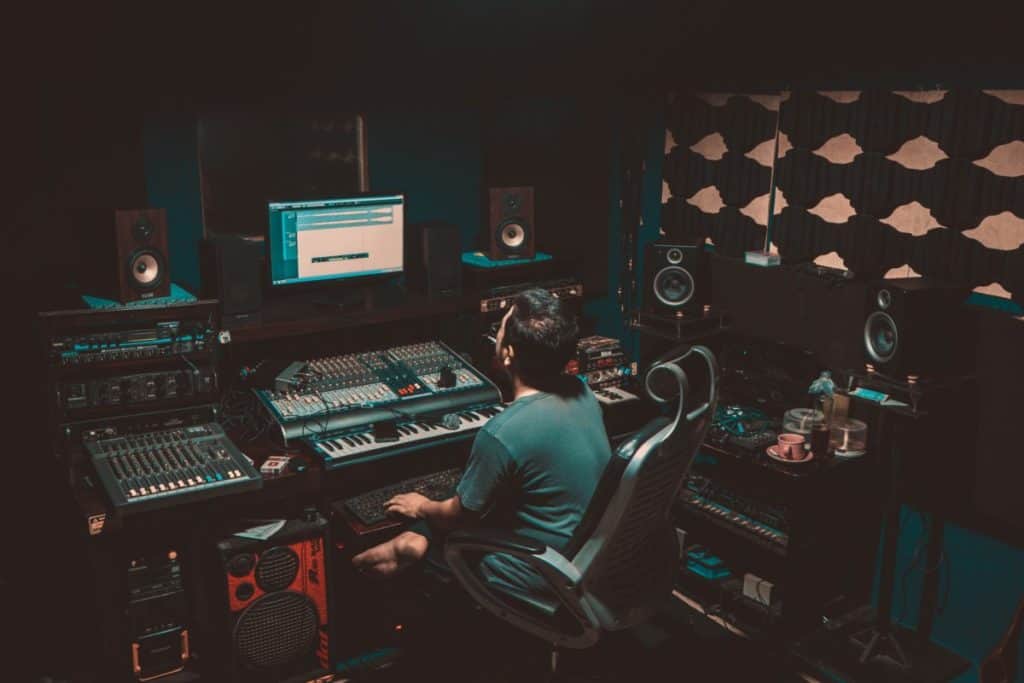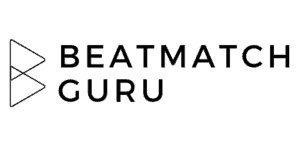
Ever since I started DJing with second hand turntables and mixer, I was fascinated by music production and all the equipment. I had no clue what producing was and how to do it. So I enrolled in course for producing music.
What’s the Difference between DJing and Producing? DJs mix music songs together by using a DJ mixer and two or more turntables. DJs blend existing music together whereas music producers create and compose individual songs using instruments, music production hardware and computer software known as a DAW (Digital Audio Workstation).
I want to share with you some insights into what actually DJing and producing music is all about. Here are some insights into both topics for you to understand the differences between mixing and making music.
What is DJing?
DJ stands for Disc Jokey. DJing is using a mixer and two turntables to mix two songs together in time, with a seemless blending of the two songs being in time together. Whether it be using CDJs, DJ controller, vinyl players or even an iPad, it doesn’t matter, the outcome and goal is the same.
An important factor in DJing is choosing a genre or not as the case may be. The reason that this is important is to do with knowing your audience but most importantly keeping it in line with your passion for music. So for example I started DJing a bit of Garage music and Drum & Bass, but turns I built a whole music collection around the faster BPM of the two as I’m naturally wired for that rhythm. Pick whatever is natural and works for you. Note that if you are an expert in your genre you can certainly make a good impression on your audience, whether it be at a club or on the radio.
Finally DJing is about crafting a journey of many song tracks for your listeners. Usually a typical mix can last anywhere between 30 mins, if you’re recording a small set to put on YouTube or Mixcloud, and from 60 minutes to 120 minutes if your playing out at a gig somewhere. I’ve heard of DJs such as DJ Marky play gigs for up to 5 hours without taking a toilet break. Impressive!
How Can I Learn to DJ?
DJing is an art. It’s also a skill that you have to learn and practice thoroughly. I learnt using second hand rubbish belt drive turntables with Drum & Bass and Garage vinyls. The key skill that needs to be mastered is the ability to listen to one track that’s playing live, and then listen to another track in your headphones. This requires training your ear and your brain to understand the difference between the two songs. However most importantly being able to pick out the individual rhythms, unique sounds (kick drum or snare for example) and then beat match the two together by using a pitch shift on the turntable, this allows you to speed up or slow down tracks to match beats together.
Getting to know the feel of the turntables that you have is key as a lot of turntables are different in response times and sensitivity of pitch shifting. That is essentially the building blocks and basics for getting started. Now all it takes is a lot of practice and persistence. Practice pays off!
You can learn to DJ by taking a course online or even at a school. I know of a school in London which I visited once for music production call Point Blank, it really is an amazing place you should check it out if you’re serious about getting into either music production or DJing.
What Does It Mean By DJ Set?
A “DJ set” is an expression used by DJs or music lovers to describe a session in which a DJ played. So a session can be a given length of time, say 60 minutes in a club in London e.g. Fabric. Within the 60 minute set, a DJ would of play multiple songs, anywhere between 25 to 50 songs depending on the style and genre of the music.
A club goer might complement the DJ by saying “great set dude”.
A DJ might use the expression in the form of “I really enjoyed my set tonight, the crowd was pumping”.
What is Music Producing?
Music producing is using inspiration to creatively craft individual sounds into a composition created of different sections such as an intro, build up into a drop then a chorus, verse and an ending.
Producers use a variety of equipment ranging from acoustic instruments e.g. guitar, shaker, violin or piano. Also used by DJs a lot is electronic equipment including recording devices such as microphones, mixers, laptop, DAW (Digital Audio Workstation) which is an elaborate way of describing ‘music production software.
Once producers have all of the equipment setup, it’s then time to put their creativity to good use. Music production software is great to record different sounds to start forming a individual tracks such as drums, melody or bassline. These individual tracks will forge a basic structure for a song.
Music software or hardware can be great to add effects to individual sounds or instruments to create a polished sort of sound, which is is know in music production as “the mix down”. It allows music producers to combine and merge sounds together to sound amazing and not all muddled. Effects such as EQ, reverb, phaser, flange, panning and delay are all elements added to give a song character, depth and professional sounding quality. Almost as if the song was being played live.
Final editing of a music track requires ‘mastering’. This is a technique of making sure that elements of the song stand out or are not going to wreck people’s ears when being played out in a club, radio or festival. Mastering helps to reach almost an industry standard of sound level for it’s listeners.
Do DJs Make Their Own Beats?
A lot of DJs make their own beats, but not all journeys and careers are the same.
Some DJs start out as music producers, so they write, create, record, mix and master their own tracks. They might end up having a big number one hit on the radio or in their niche genre of music for example Trance or Techno. From there demand for their appearance to play live gigs might become apparent. So either it’s a fact that a producer might already have DJ abilities, or they will have to learn very swiftly.
In some cases DJs are just DJs. They learn to mix, love it, make a living and a career out of it. It maybe the case that they never make beats at all, or they might dabble in a bit of beat making, for example take on a few remix projects to play in live in their DJ sets.
I know of a couple of DJs in Drum & Bass that fit that category and Andy C, DJ Bailey and also Friction started out playing as DJs in clubs and then evolving into music producers. It’s not uncommon to take this route as many DJs evolve into being record label owners and then might work with other talented producers to release music to promote the label. The two can areas of DJing and music producing can work really well together.
What’s the Best Beat Maker?
The best beat making software in my opinion is a software that gives you the best balance of creativity, workflow and production to finish off the final version of a song.
DJs make their own beats by using music production software known as a DAW (Digital Audio Workstation). Top beat making software includes:
- Fruity Loops Studio
- Reason by Propellerhead’s
- Logic Pro
- Cubase
- Ableton Live
- Maschine Studio by Native Instruments
- Garageband
All the different DAWs come equipped with varying functionality. By that I mean some a great at making beats straight away, they come pre-loaded samples and instruments. Whereas others are a bit more bare and require you to buy VST plugins, loops and samples to then make beats/sounds etc.
Pricing can vary a lot between all the different DAW setups, so it depends on whether you are a beginner, advanced or expert user. Also it really depends on how much time and money you want to invest. Music production can sometimes take over your life, but in a good way obviously.
Related Questions
What software do most DJs use?
DJs use software to mix music songs together. DJ software, also known as emulation software, is created most commonly by brands including Traktor and Serato.
What is the best DAW for beginners?
Easy to use DAWs include Ableton Lite, Fruity Loops, Audacity, PreSonus and Stagelight.
Is Ableton Free?
It is possible to use a free version of Ableton Lite, in some cases Ableton software is downloadable from their brand website or free with music equipment.

